

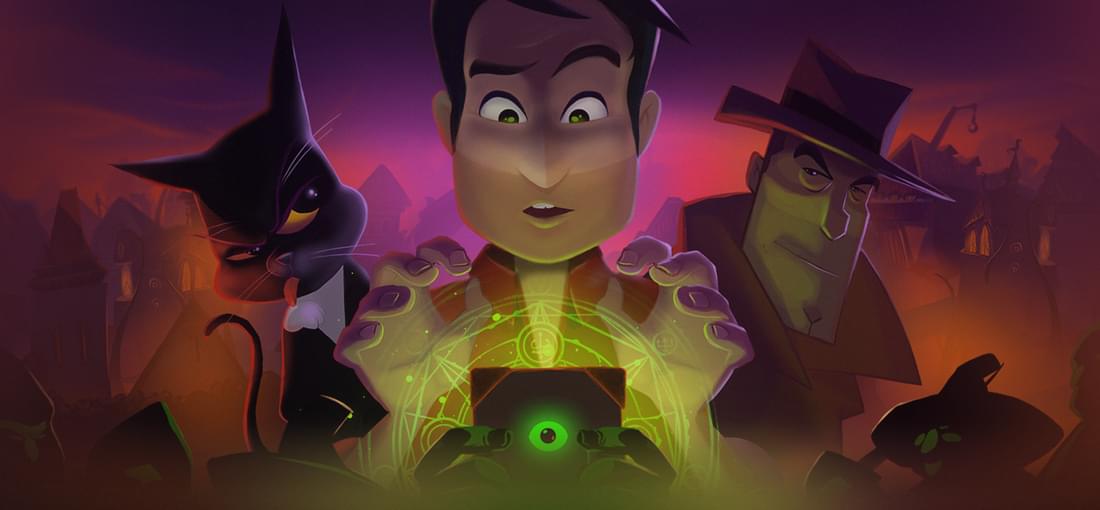
Disclaimer: this is the first Kickstarter I don't regret backing. Gibbous is a traditional Point and Click Adventure game in the vein of Lucas Arts' genre-classics (particularly Monkey Island). It takes place in a Lovecraftian world that doesn't take itself too seriously (a combination that strangely works to very good effect), and adheres to the traditional P&C gameplay formula to a fault. When playing, the first thing you'll notice is the absolutely top-notch graphic design and animation. The backgrounds are incredibly detail-packed and beautiful, the characters full of personality and expertly-animated. In this regard it equals or surpasses classically animated greats such as Curse of Monkey Island (whose style it closely resembles). The sound, music and voice-acting are also very good. Gameplay is brisk and fun as you go through an increasingly deranged globe-trotting adventure that largely succeeds in keeping your interest throughout. It boggles the mind this is the product of the work of a three-strong studio. It's a labor of love (and five years of hard work) and it shows. As minuses, I'll have to mention that puzzles generally are too simple (as has sadly been the trend in modern adventure games), the game is somewhat short (which is natural as puzzles are rarely roadblocks), a small part of the voice acting feels stilted or unnatural, there are some instances of millennial moralizing, the ending sequence feels a bit rushed and the story doesn't have an entirely satisfying wrap-up. But truly, this is nitpicking for such a solid first product from a small outfit. If you enjoy classic cartoon animation, Lucas Arts adventures (particularly the Monkey Island series), the Lovecraft mythos and/or cats, this is for you.
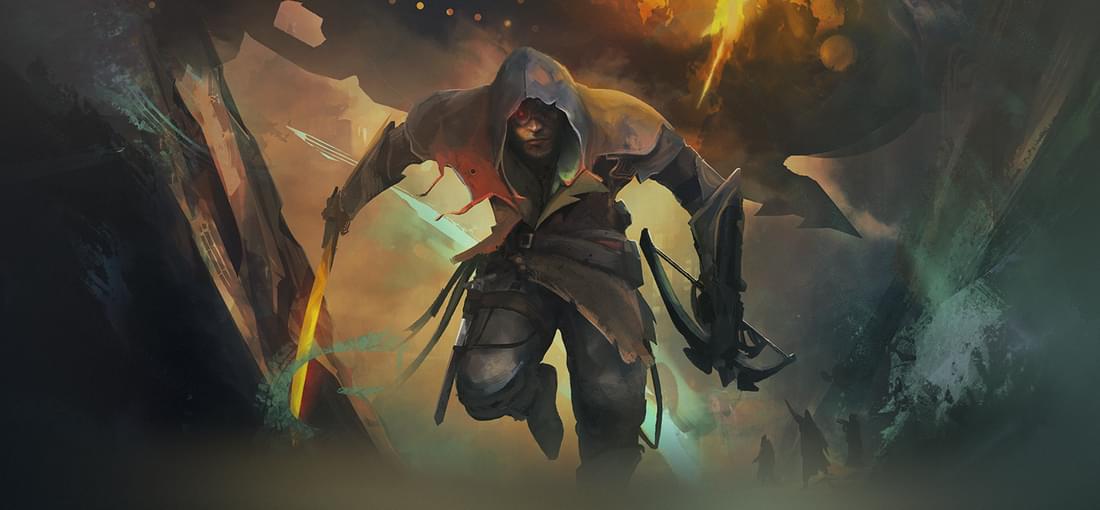
As an isometric perspective stealth open-world RPG (that's a mouthful!), Seven is a truly unique offering that presents an unlikely blend of styles that works surprisingly well. In it you play as Teriel, a grizzled thief that is transported to a prison colony after botching a job, and to top it off, is possessed by an arrogant Daemon that starts making demands of him. The setting is well realized, a weird post-post-apocalyptic Earth where the familiar and the alien meet. The game plays as an isometric real-time RPG where you control your character as he fluidly "parkours" through the landscape. You can chose a stealthy approach supported with plenty of mechanics, or brute-force your way with a rather varied combat system. While the game is an RPG, it's unique in that you don't gain levels, but instead grow stronger by upgrading your gear and acquiring abilities and the "skill chips" to install them. The system is great as it grants a steady feel of progression, but never makes you so overpowered as to render stealth useless, nor forces combat to progress. The audiovisual department is no less unique. The game uses a cell-shaded look with a weird color palette that has a lot of personality. The sound is competent, the voice acting for the main characters very good, and the soundtrack great. The game is a slow burner and demands a bit of patience to understand its systems, but once you do you'll be rewarded by a truly one-of-a-kind experience. There are faults with the game (e.g. camera on some indoor areas, initially confusing loot system, consumable use not sufficiently encouraged, too-restrictive encumbrance), but they are minor in the grand scheme of things. The most important shortfall for me was that the dialogue system is not particularly deep and that NPCs lack personality and depth. In short, a truly memorable game that leaves you wanting more, both for its setting and unique systems. P.S.: GOG gives too few chars to review such a unique game.
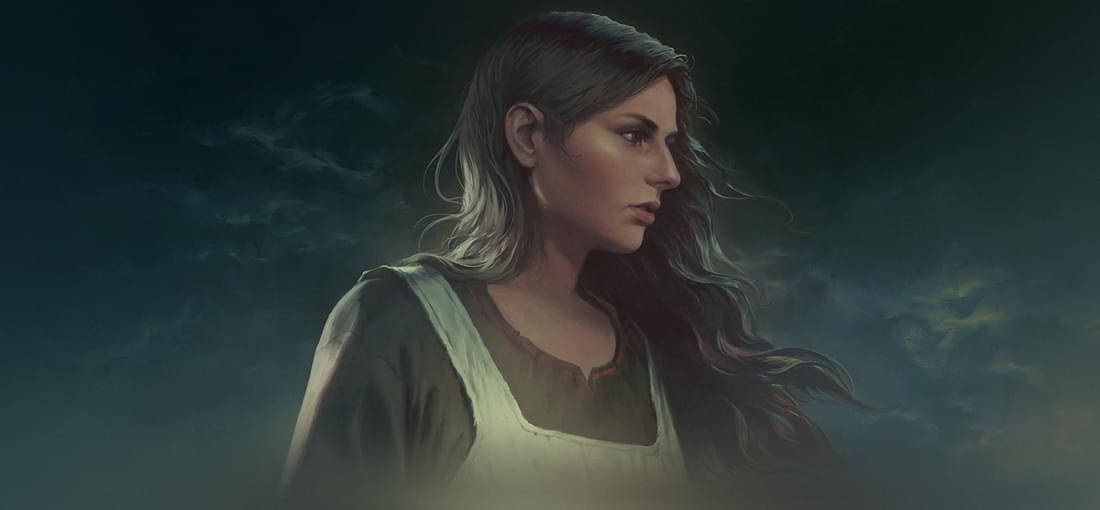
A Woman's Lot is the final, most substantial DLC for Kingdom Come Deliverance. It is also the one I consider essential, as it's composed of three elements that greatly add to game's the core mechanics, themes and characters. First, there is a new dog companion with its accompanying skill. As you gain experience in your "Houndmaster" skill, your dog will learn new tricks to aid you in your adventures, such as hunting (great for those meat collection activities), pinning down enemies, warning you of ambushes and helping you find points of interest. I was expecting it to be an afterthought, but I found it an exceptionally well integrated feature. The doggy is both useful and lively, providing a sense of companionship. I can't comment on the experience of playing the entire game with it, though, since I was at the end of my play-through. The second element is a quest line where you play as Theresa as she recounts her experience of the Skalitz raid. Her story is cleverly weaved with Henry's own tale, and adds unexpected depth to familiar characters and events. It has a phase full of humor and nice details where you revisit Skalitz peaceful pastoral life, and another gut-wretchingly sad one set in the raid, where you once again play as a vulnerable character with no combat experience thrust into a horrific situation. The final, unexpected, and very welcome part of the DLC is a new questline for Henry where he helps her friend Johanka after she starts getting religious visions on her dreams. Without spoiling it much, it's full of variety, details, twists and turns, it's probably the best questline in the game, and its ending is guaranteed to have you on the edge of your seat (hint: make sure to have several save games in case things don't turn out as you planned). All in all, the entire DLC is very well done, and has great writing, variety, exceptional attention to detail and good integration with the main game. If you buy one DLC for KCD, make sure it's this one.
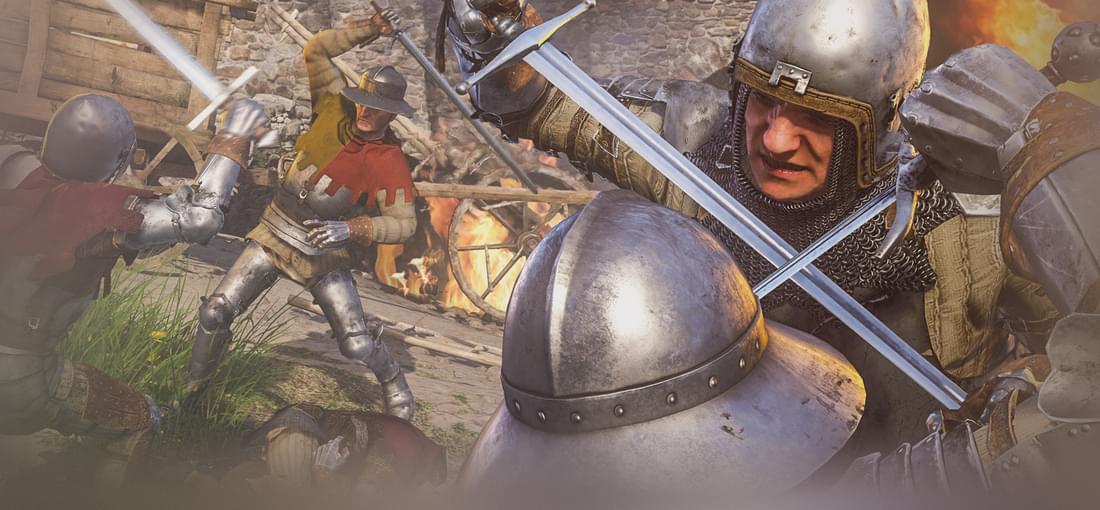
(This is a review of the OST, not the game). Kingdom Come's soundtrack is excellent, so I bought this with little hesitation. Note however, that this is called "OST Essentials" for good reason - you'll mostly find the cinematic score (the songs that play in the key game sequences and cutscenes), not the full game soundtrack. That meant that some of my favorite arrangements were not included, which was frankly disappointing. Still, the overall quality of the OST makes it hard for me to give even this mutilated version a bad score. Pieces like "Till Our Heads Turn White" alone may be worth the cost of admission, but consider the limitations before you purchase.
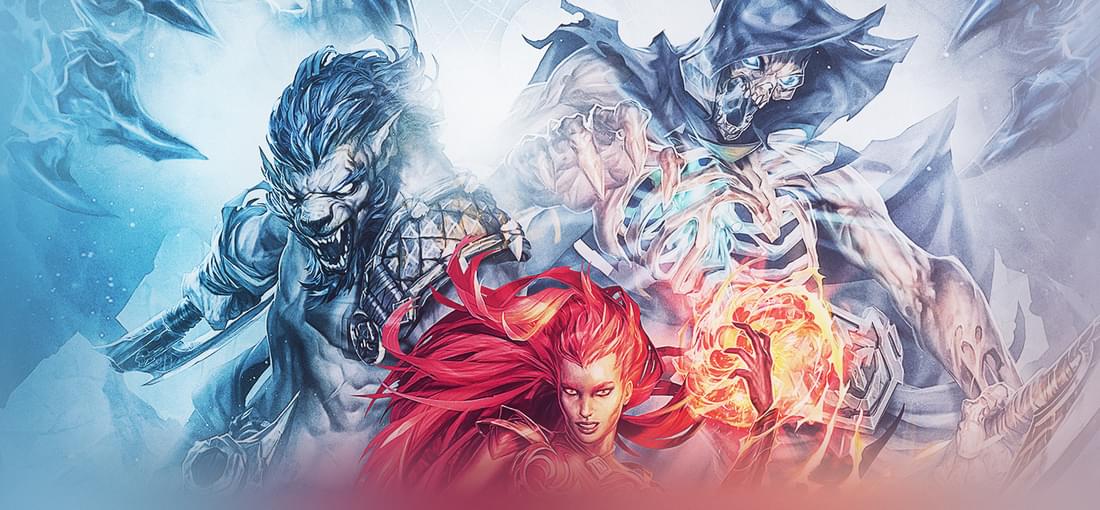
I'm quite a fan of the ARPG genre and I have to say that this game is now among my favorites, if not my favorite. I S:A you play as a demon that lives in a parallel world (the Shadow Realm). As the demon consumes the souls of its strongest enemies, it's allowed to manifest itself as those souls in the physical world. This premise allows for two clever things. First, instead of a single-character with a class, you play a menagerie of disparate characters (everything from a giant wasp to a wolf-man) that have unique skill sets. You have three at a time, but can switch them frequently. Using the right character for the situation and finding complimentary skills among your favorite characters is a key part of the fun. Second, switching from the physical to the Shadow Realm freezes real-time, reveals different enemies, opens pathways and reveals runes and secrets, reinforcing the exploration aspect of the game and allowing for some clever mechanics on puzzles and boss fights. This good premise is then combined with solid, fluid ARPG mechanics, simple puzzles that are a nice change of pace and encourage paying attention your surroundings, good music, superb voice-acting, good graphic design and a plot and characters that really bring out a wholesome feel of adventure (the cast of characters, particularly the demon, are quite endearing). Yes, outstandingly for ARPG's, there's an actual plot here, with true dialogue choices, a karma system and "choice-and-consequence". If any of this sounds appealing to you, try it - you won't regret it.
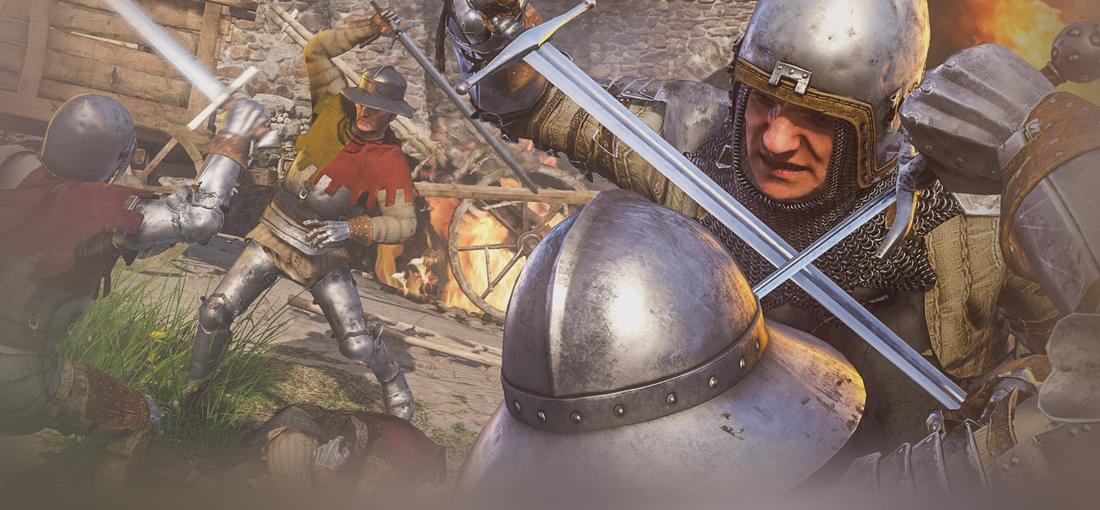
I always dreamed of a first-person historic RPG with an uncompromisingly recreated historical setting. A game where reality inspires the game systems instead of recycled systems being shoehorned into a new setting. Well, my dream is here and I enjoyed it as much as I hoped. This game is an Open-World RPG starring a humble blacksmith's son, Henry. It has an interesting story that is designed to give a sort of "medieval life tour". You'll attend executions, serve as man-at-arms for your liege lord, enter a Monastery, help alleviate pestilence, learn to read, and much more. It also features a lovingly crafted world that is just a pleasure to explore. Instead of auto-generated landscapes, you see the hand of the designers in every corner of the dense forests, pastoral landscapes, humble towns and imposing castles. It was fun to see the approach the developers took to showcase the diverse aspects of medieval life, the ways the weaved real history into a plausible plot, the winks and jokes at the expense of our foreknowledge, and so on. The developers evidently were making their dream game, and it shows in a myriad of subtle ways. For me, the only true fault of the game are the numerous scripting bugs that affect its quests. The developers seem committed to fix them, but there are a lot of them. Of course, there is room for improvement (e.g. in quest reactivity), but what the developers pulled off with their limited resources is nothing short of impressive. Some notes: - I found the controversial combat system quite excellent. Few games reproduce the physicality of combat as this one, as well as organically integrating it's many intricacies. Its faults are more a matter of implementation that wrong fundamentals. - I loved the ending, but many didn't appreciate it because it's inconclusive. - If you are an old-school player, do yourself a favor and play in Hardcore Mode. It sounds like an exercise in frustration, but you gain a lot in immersion and joy of exploration.

Inspired by the all-time classic "Planescape: Torment", "Tides of Numenera" is a worthy return to a long dead pseudo-genre that bridges RPG and text adventure. This is the only game in town (literally) if you enjoyed PS:T, or if you haven't played the classic but are: a) not afraid of reading in the context of a PC game, and b) attracted by the notion of a game driven by a strong narrative and crafted with almost baroque attention to detail. The sometimes incoherent "Numenera" setting is surprisingly used to good effect, the game's own setting is well developed and original, the themes explored interesting, the reactivity and attention to detail extraordinary. Note that the charisma of the companions, the emotional resonance of the narrative, and the climactic ending that defined its forebear don't make a return. But still, the narrative and reactivity stands stories above what you'll find in even the more story oriented of today's RPG offerings. The developers also made some interesting design choices that, while didn't make everyone happy (I liked them personally, but I'm weird that way), showed their commitment to break new ground. For instance: "crisis events" with possible non-combat resolutions instead of plain combat situations, failed skill checks that bring interesting and beneficial effects, mix of party-supported and main-character-only skill checks, "chose your own adventure" text sequences that make sense in the setting, and so on. While not the second coming of PS: T, this is the only game that tries to pick up where it left off and evolve from there. As a return to form, a promise of things to come and a fun game in it's own right, this game is a triumph, and as such it's a very worthwhile addition to any RPG fan's library.
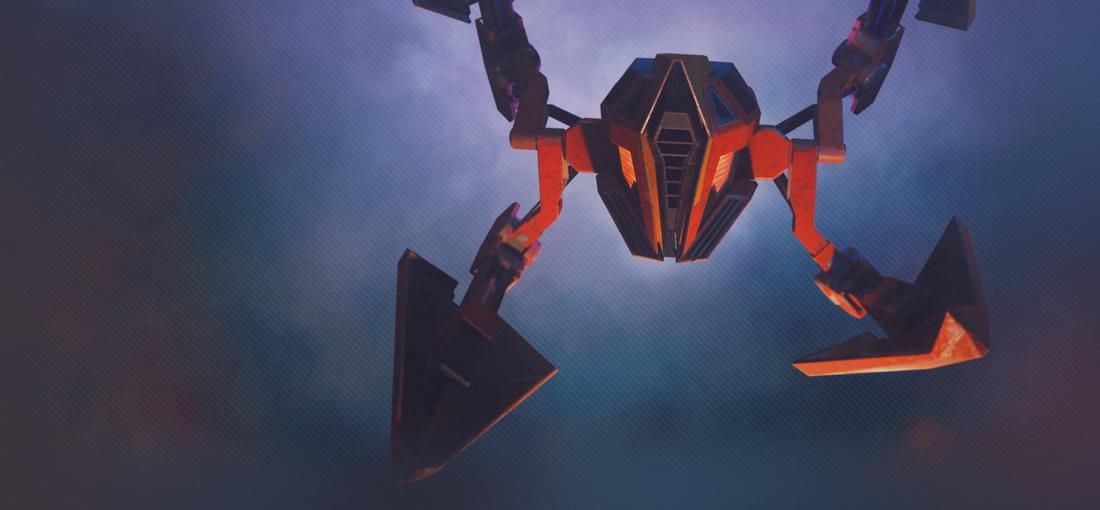
Overload is the true successor to the classic 6 degrees of freedom shooter series "Descent". Fans of the series will need no further introduction. To those new to the series, it featured the strafe-happy classic 90s FPS mechanics combined with total three-dimensional freedom of movement, and saw you pilot a spaceship through complex, multilayered mining installations shock-full of secret doors, power-ups, upgrades, people to rescue and robotic foes to blast to smithereens. While as a kid I couldn't truly get into the series because of the mild nausea caused by extended play sessions, I've played this new iteration in short bursts and thoroughly enjoyed the experience which I heartily recommend. Overload is faithful to the classic series philosophy and 90s design philosophy "to a fault" (actually, it's quickly apparent it's just the opposite of a fault). If you're looking for "innovation", this probably isn't your game. However, if you're looking for classic game design, with no compromises, you found it. No QTEs nor cinematic inspirations here. Just pure, exhilarating gameplay with solid base mechanics. On first impression Overload looks somewhat simplistic and even unambitious game. Just a few minutes will reveal a game we're each aspect is expertly polished and becomes greater than the sum of its parts. And we're talking about such parts as: Finely-honed gameplay mechanics, with combat that is readable, responsive and intense, and intuitive navigation. Nice upgrade system. Varied and distinctive weapon design. Superb level design, with gargantuan, complex levels filled to the brim with secrets. Solid sound design, with a clear sound mix and great positional soundscape. Great voice acting. Pumping techno/industrial soundtrack. Spartan and elegant graphic design were enemy and room recognizability are appropriately emphasized. A simple yet engaging story that with never gets in the way of gameplay, but bolsters it. Variety in difficulties, game modes (campaign, new game+, challenges, multiplayer). And so on. It all the elements come together into what was for me an extremely fun package. Hopefully the developer "Revival Productions" has lived up to its name - this is the resurrection of classic design philosophy, and I hope to see more of it.